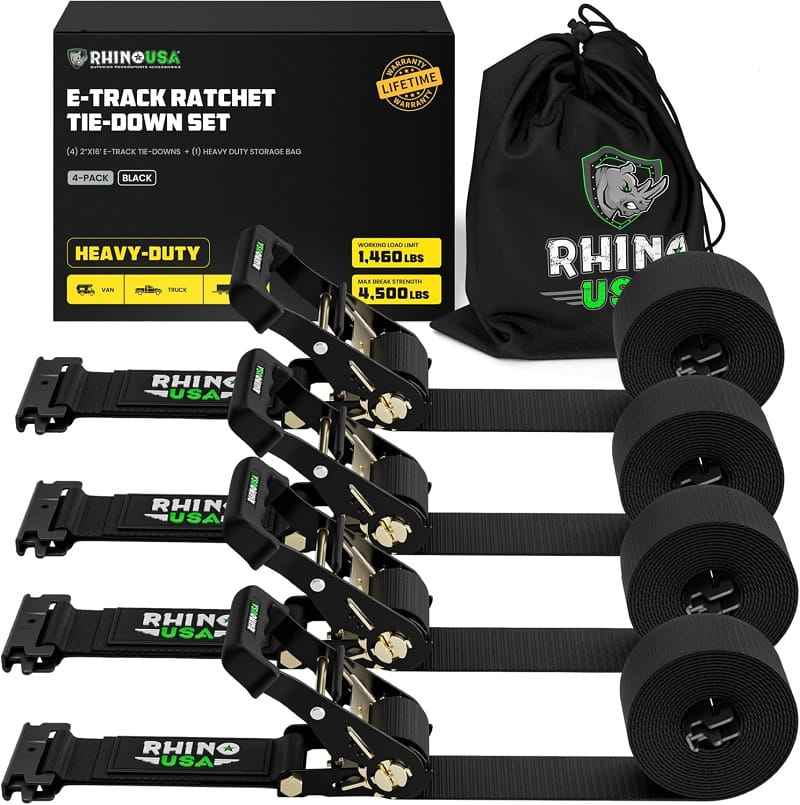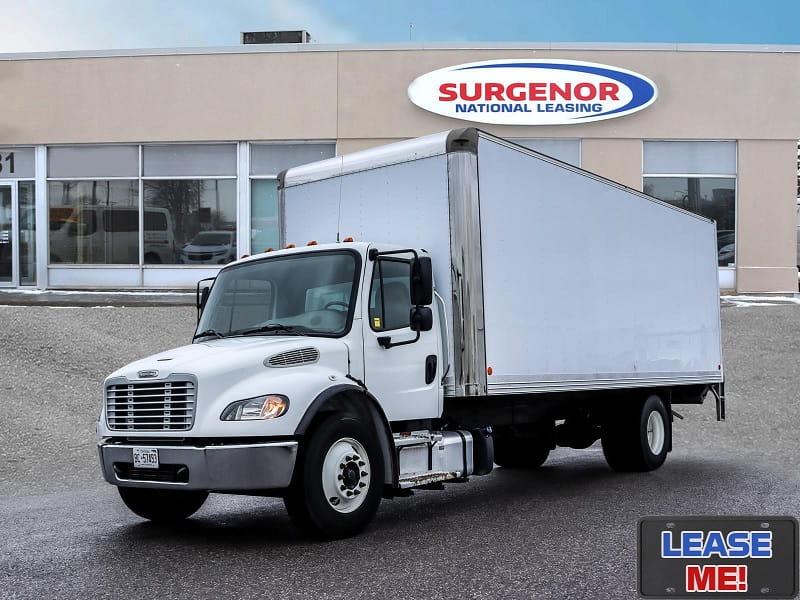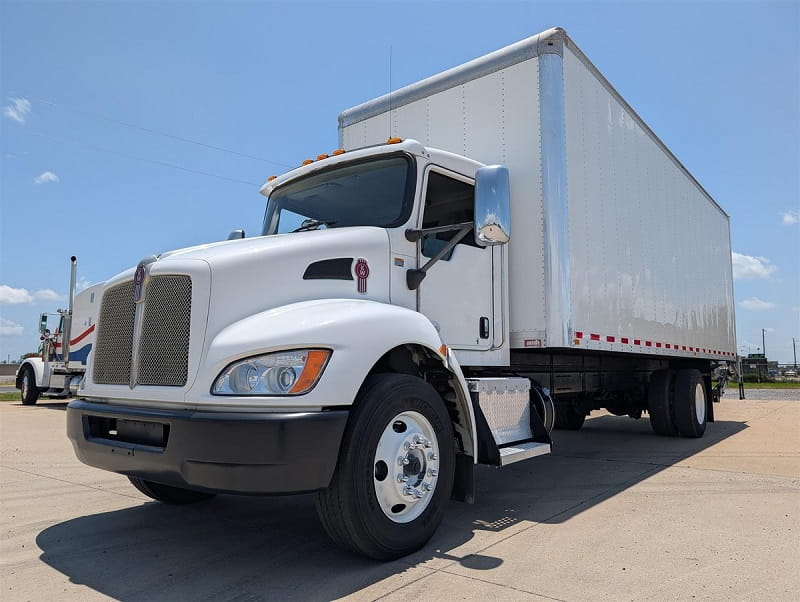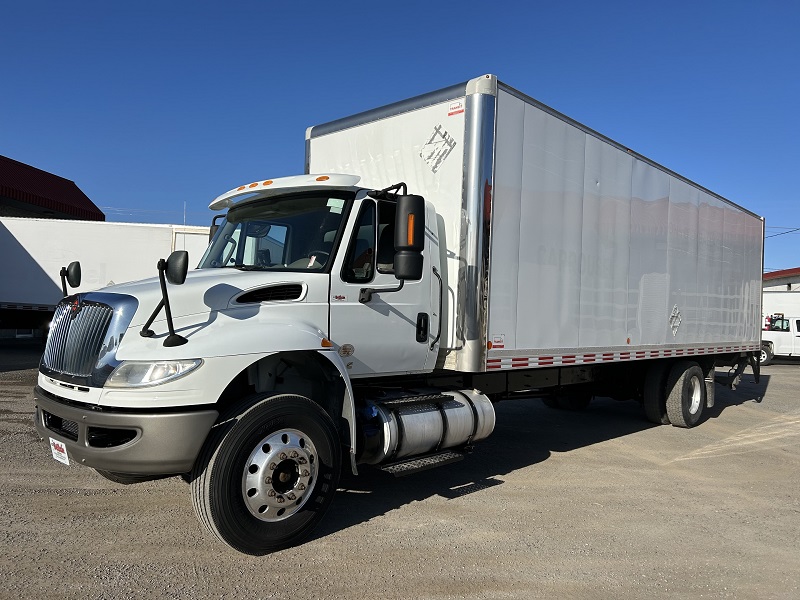This post contains affiliate links. This means I will make a commission at no extra cost to you should you click through and make a purchase [ “As an Amazon Associate, I earn from qualifying purchases.” ]. Read the full disclosure here.
Flat Nose Box Truck for Sale: The Smart Choice for Urban and Tight-Space Deliveries GuideMechanic.Com When maneuverability and visibility matter just as much as cargo space, a flat nose box truck—also known as a cab-over box truck—is a top-tier solution.
Whether you’re running deliveries in urban areas or need a compact turning radius for tricky routes, flat nose trucks offer superior practicality.
In this guide, we’ll walk through everything you need to know about shopping for a flat nose box truck for sale, including why it might be a better choice than traditional long-nose models, what features to prioritize, and a 2025 price breakdown to help you make a smart buying decision.

Flat Nose Box Truck for Sale
See Also: Used Isuzu Box Truck for Sale
What Is a Flat Nose Box Truck?
A flat nose box truck features a cab-over-engine (COE) design, where the driver’s seat is positioned directly above the engine compartment, eliminating the long hood.
This design reduces overall vehicle length while preserving box space, making these trucks ideal for city use and tight navigation.
Flat nose box trucks are popular with:
- Local delivery companies
- Independent freight operators
- Moving services
- Retailers with warehouse distribution
- Construction and service fleets
Why Choose a Flat Nose Box Truck?
Better Maneuverability
Flat nose trucks have a shorter wheelbase, allowing for tighter turns, easier parking, and better access to urban delivery points.
Improved Forward Visibility
With the cab directly above the road, drivers have a wider field of view, improving safety in crowded or congested areas.
Maximize Box Length
Because there’s no hood, you can get a longer box body on a shorter chassis—great for maximizing cargo without exceeding parking limits.
Easier Maintenance
The cab can tilt forward for full engine access, making it easier and faster to perform repairs.
Common Features
| Feature | Typical Range / Notes |
|---|---|
| Box Length | 14 – 26 feet |
| GVWR | 12,000 – 25,950 lbs |
| Transmission | Automatic or Manual |
| Engine Type | Diesel (most common) or Gasoline |
| Liftgate | Optional, often hydraulic |
| Door Type | Roll-up rear, swing side options |
| Interior Height | 6.5 – 8 feet |
The most common body styles are 16 ft and 20 ft box lengths, often equipped with E-track and liftgates.

Top Flat Nose Box Truck Models (U.S. Market)
If you’re looking for a flat nose box truck for sale, consider these reliable models that dominate the American market:
- Isuzu NPR / NQR / NRR: Extremely popular for delivery services. Great MPG, tight turning, and long lifespan.
- Hino 155 / 195: Japanese-built, diesel-powered workhorses with strong dealer support in the U.S.
- Mitsubishi Fuso FE Series (used models only, as new models are discontinued in the U.S.): Known for durability and city navigation.
- Freightliner MT / M2 Cab-Over Configurations: Heavier-duty options in flat nose format, suitable for larger payloads.
- Chevrolet Low Cab Forward (LCF): Built with Isuzu platforms—available with gas or diesel engines.
2025 Price Guide: Flat Nose Box Trucks
Flat nose trucks, especially diesel models, hold their value well due to fleet demand. Here’s a general idea of what you’ll pay on the used market in 2025:
Price Table – Flat Nose Box Trucks (2025 Estimates)
| Condition | Model Years | Estimated Price Range |
|---|---|---|
| Older Fleet Units | 2008 – 2012 | $9,000 – $15,000 |
| Mid-Range, Reliable | 2013 – 2017 | $16,000 – $24,000 |
| Low-Mileage Used | 2018 – 2022 | $25,000 – $36,000 |
| New or Like-New | 2023 – 2025 | $40,000 – $60,000 |
Prices may vary based on box size, liftgate, and engine type (diesel units typically cost more but offer better longevity).
What to Look For When Buying
- Check the Tilt Cab Mechanism: Ensure the cab tilts smoothly and locks securely. This is key for engine maintenance access.
- Review Engine Type and Mileage: Diesel engines can last 300,000+ miles with good maintenance. Gas options are cheaper up front but may not last as long.
- Inspect Undercarriage: Flat nose designs place the cab directly over the axle. Watch for frame rust and suspension wear.
- Test Turning Radius: Do a full turn in a tight space to confirm the truck handles as expected—especially important for city routes.
- Inspect Liftgate (if equipped): A faulty liftgate can cost $1,500+ to repair or replace. Check the hydraulics, wiring, and weight capacity.
Flat Nose vs. Conventional Box Trucks
| Feature | Flat Nose | Conventional (Long Nose) |
|---|---|---|
| Maneuverability | Excellent | Moderate |
| Forward Visibility | Superior | Limited by hood |
| Maintenance Access | Tilt cab access | Requires hood space |
| Fuel Efficiency | Often better in city driving | Better on highways |
| Overall Length | Shorter truck, longer box | Longer truck, less box |
| Driver Comfort | Slightly more cramped | More space in cab |
If your route is mostly urban or suburban, the flat nose design is usually the better choice. For cross-country or long-haul deliveries, a conventional cab may provide more comfort.
Who Should Consider a Flat Nose Box Truck?

- Local delivery fleets (groceries, packages, furniture)
- Moving companies operating in cities
- Retail stores with multiple regional locations
- Independent couriers or service providers
- Short-haul logistics providers
Because of their visibility and ease of parking, flat nose trucks are often the first commercial truck a small business will buy.
Used vs. New: What Makes Sense?
Used Flat Nose Box Trucks
- Lower cost
- Faster return on investment
- Ideal for new businesses
New Flat Nose Box Trucks
- Better fuel efficiency and emissions compliance
- Full warranty
- Less downtime
Used models from Isuzu, Hino, and Freightliner are common on the market with long lifespans, making them a smart starting point.
Final Thoughts
A flat nose box truck offers a smart, practical design that’s especially suited for busy city deliveries, tight spaces, and stop-and-go driving.
Whether you’re upgrading your delivery fleet or starting your logistics business from scratch, finding the right flat nose box truck for sale could be your best long-term investment.
Prioritize models with good service history, inspect the tilt cab and engine condition, and always confirm GVWR, especially if you want to avoid CDL requirements.
- Custom Lifted Diesel Trucks for Sale - December 20, 2025
- New Lifted Diesel Trucks for Sale - December 19, 2025
- Old Lifted Diesel Trucks for Sale - December 18, 2025

